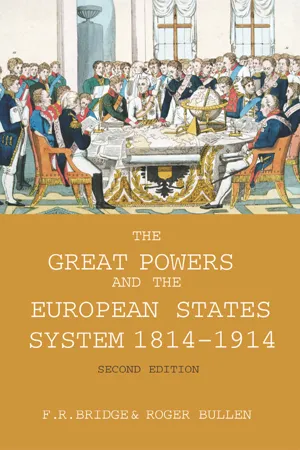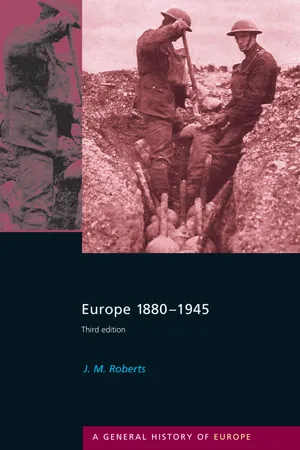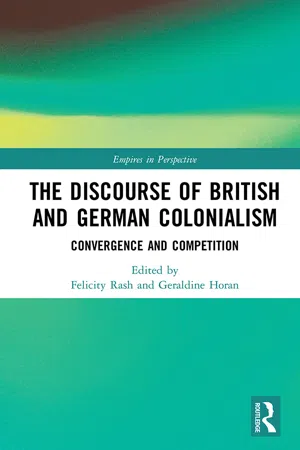History
Moroccan Crises
The Moroccan Crises were a series of international disputes in the early 20th century over the control and influence in Morocco. The First Moroccan Crisis occurred in 1905 when Germany challenged France's influence in the region, leading to a diplomatic standoff. The Second Moroccan Crisis in 1911 further heightened tensions between European powers and contributed to the build-up to World War I.
Written by Perlego with AI-assistance
Related key terms
3 Key excerpts on "Moroccan Crises"
- Roy Bridge, Roger Bullen(Authors)
- 2014(Publication Date)
- Routledge(Publisher)
CHAPTER 9 Polarization and war, 1911–14 The Second Moroccan crisisT he crisis that erupted in the summer of 1911 from Franco-German disagreements over remote regions of Morocco and Central Africa was to prove the start of a truly awesome chain reaction. In the following three years of almost continuous crisis, first the Ottoman possessions in North Africa and then the Ottoman Empire in Europe, were overwhelmed, until finally a direct threat was posed to the vital interests of the great powers in Europe that plunged them into the first general war for over a century. True, for two years the European states system showed enough flexibility to manage the crisis without embroiling the great powers in wars amongst themselves. Morocco and Tripoli were too remote from the vital interests of the powers to produce a relapse into the polarization of 1908; and if there were disturbing signs of both polarization and the militarization of diplomacy during the Balkan Wars of 1912–13, these proved just sufficiently serious to frighten the powers into putting their common interests in the maintenance of peace before their separate concerns, without, however, posing the kind of threat to their vital interests that was in 1914 to plunge them into war.In the long term, however, the apparent vitality of the Concert of Europe was deceptive. In the first place, three years of continuous crisis inflicted irreparable damage on the states system: the constant strain on the international nerves led to a steady diminution of trust, polarization, and a concentration on an armaments race that had by 1914 produced an extremely dangerous situation, in which both groups of powers were better prepared for war than ever before. The military imbalance that had helped to keep the peace in 1905 and 1909 had disappeared. In the second place, the destruction of the Ottoman Empire in Europe, a buffer state that had performed a vital stabilizing function even after, or especially after, the collapse of the Austro-Russian entente, created by 1913 a power vacuum throughout the Near East. That the fiercely competitive successor states were all too willing – unlike the Turks – to throw in their lot with one side or the other in pursuit of their ambitions, made both Vienna and St Petersburg fearful for their most vital interests; and the implications of this for their allies and entente partners made the developing crisis in the Near East a crisis of the whole states system. It was no coincidence that within less than a year the system dissolved in general war.- eBook - ePub
- J.M. Roberts(Author)
- 2013(Publication Date)
- Routledge(Publisher)
Dreikaiserbund was blown away for ever. A secret Austrian treaty with Bulgaria followed and the chief of the Austrian general staff was soon urging a war to decide who should be master in the Balkans. The South Slav question was not soothed but inflamed. Conditions did not improve in the provinces and Serbian support of the Slav revolutionary movements was now unconcealed. Another territorial blow had been struck at the Turkish empire (fairly well preserved since 1886); Serbs, Bulgars and Italians noted it with interest. Finally, Russia was not in any final sense intimidated by Germany; she was deeply resentful and began to re-arm in earnest. It was unlikely that she would again allow her prestige among Slav nations to be so far jeopardized.The outbreak of war
After the Bosnian crisis, the actions of the central powers did more and more to make the gap between them and the Entente powers unbridgeable. The Agadir crisis was the first instance of this. Although (as in the first Morocco crisis) France was Germany's ostensible opponent, its main importance was in Anglo-German relations; in the background was the increased tension over naval programmes since the acceleration of 1909.French influence in Morocco had grown since 1906. There had been disputes over the help given by the German consul there to German deserters from the Foreign Legion (1908) but Franco-German relations had been good enough for agreement on a French loan to prop up the sultanate. Nevertheless, Morocco was dangerous. It was unstable. Like China and Turkey, Morocco was a crumbling and invalid polity whose decline was bound to pose problems to the great powers. When a Berber rebellion took place in 1911, the French sent an expedition to occupy Fez, the capital. German concern was natural; the British occupation of Egypt had begun in a not dissimilar way. Since 1905 Germans had begun to believe that Morocco was economically important to them; the German government thought it had better make sure that it obtained compensating advantages for any extension of French influence. On 1 July 1911 the gunboat Panther arrived at Agadir and the crisis began.The excuse was the protection of German nationals in Agadir; there were none. The purpose was to frighten the French into compensations; no such action, in fact, was required. The French government was quite prepared to negotiate an agreement; Caillaux, whose government took office on 1 July, wanted good relations with Germany. Discussions began a few days later, but, fearing to appear weak, the French government had much less freedom to make concessions than it would have had in a negotiation begun less convulsively. Worse still, the Panther - eBook - ePub
The Discourse of British and German Colonialism
Convergence and Competition
- Felicity Rash, Geraldine Horan(Authors)
- 2020(Publication Date)
- Routledge(Publisher)
The process of weakening Morocco by the French and the British was different from the German colonialist attitude towards the Moroccan sultan. While the French position vis-à-vis the Moroccan question had been tailored in a diplomatic manner regarding the presence of other European empires, ‘Germany, who had been a signatory of the Madrid Convention of 1880, the original agreement dealing with Morocco, had not even been officially notified, let alone consulted. Thus, Morocco had become a symbol of Germany’s declining prestige’ (Mortimer, 1967: 440). As long as that situation had deflated the German ego, the imperial powers’ apparent indifference to Germany’s interests provoked an unwanted response from the Germans. As a non-colonized territory in the North African area and as one of the few unclaimed countries on the map of the world, Morocco represented a perfect ‘place in the sun’ for Germany (Hewitson 2004: 147). Accordingly, to oppose a likely French invasion of Abdelaziz’s weak Moroccan sultanate, the Germans planned a visit by the Kaiser himself to Tangier in order to assure the besieged sultan of German support (Benjamin and Ashjian 2015: 9). Following this German interference in Morocco, warnings about an imminent war between France and Germany came to the fore, initiating in 1905 what historians have seen as the first Moroccan Crisis. Following the crisis, diplomatic relations between the great powers deteriorated:The conference of Algeciras in 1906 thus serves as a reminder that colonialism in 1905–1906 took many forms; the violent genocide in Germany’s southern African colonies was paralleled by German claims to be the protector of the Sultan’s interests, and the economic interests of the Moroccan people.(Jones 2009: 2)Undoubtedly, the Kaiser’s insistence on the presence of Moroccan delegates at the 1906 Conference of Algeciras was based on the fact that ‘[i]n German war discourse, the Self is constructed as a peace-loving and responsible actor who has done everything in his power to avert war’ (Rash 2012: 169). The Kaiser’s support for Moroccan independence, expressed in his Tangier speech of 31 March 1905, in which he made an urgent request for an international conference to discuss the Moroccan issue, would enable the Germans to isolate France and Great Britain. The Kaiser was motivated by the desire to colonize parts of Africa, as illustrated in the German discourse of the period:Two separate strands of motivation then began to emerge: one involved giving to and the other taking from the autochthonous peoples. Both of these motives had the potential to increase the colonizers’ prestige within Germany and German prestige beyond its borders.(Rash 2017: ix, italics original)The Kaiser’s support for Moroccan independence was limited and only based on the hope of Germany gaining colonial advantages in Morocco. The Moroccan delegation at the Algeciras conference had no support and its members were treated with disdain by the European Other: ‘We are not benighted savages. We have much to do before we can compare ourselves with you but we possess a civilization, a legal system and a religion deserving all respect’ (Jones 2009: 6).
Learn about this page
Index pages curate the most relevant extracts from our library of academic textbooks. They’ve been created using an in-house natural language model (NLM), each adding context and meaning to key research topics.


